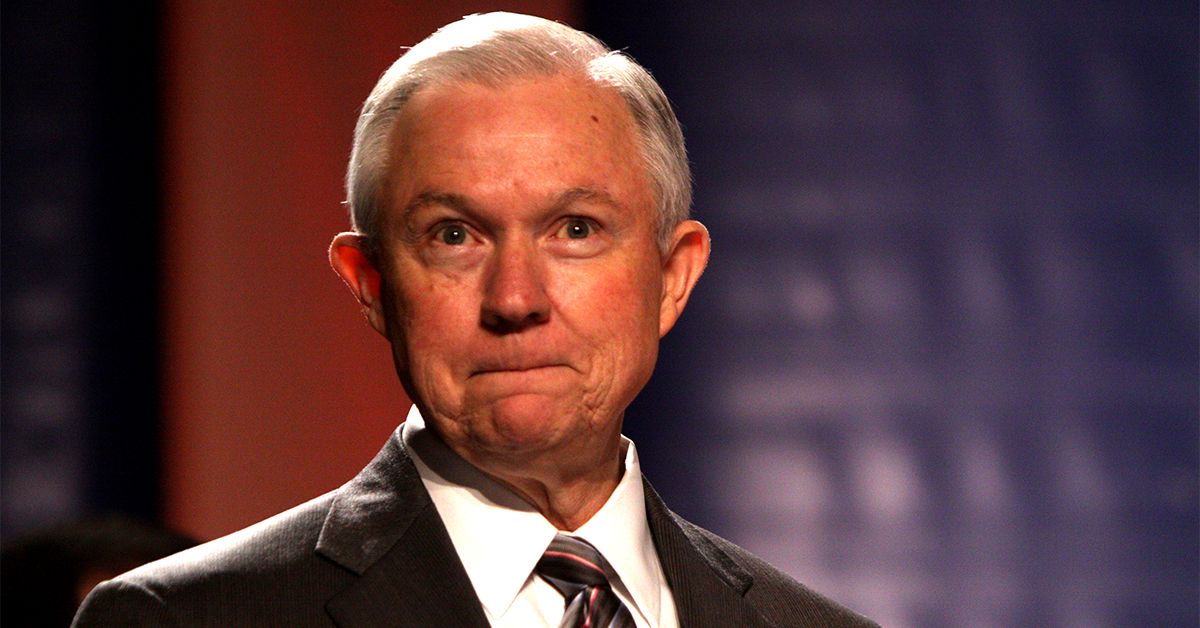On 12 May 2017, Attorney General Jeff Sessions released a memo to all federal prosecutors announcing a "sweeping" change to criminal justice policy.
Sessions' memo, dated 10 May 2017, was widely viewed as a "significant reversal" of Obama-era Justice Department practices:
In a memo to staff, Attorney General Jeff Sessions ordered federal prosecutors to "charge and pursue the most serious, readily provable offense" — a move that marks a significant reversal of Obama-era policies on low-level drug crimes.
The two-page memo, which was publicly released Friday, lays out a policy of strict enforcement that rolls back the comparatively lenient stance established by Eric Holder, one of Sessions' predecessors under President Barack Obama.
In the memo, Sessions explained:
This policy affirms our responsibility to enforce the law, is moral and just, and produces consistency. This policy fully utilizes the tools Congress has given us. By definition, the most serious offenses are those that carry the most substantial guidelines sentence, including mandatory minimum sentences.
The Washington Post reported that Sessions' directive essentially reverses an August 2013 charging and sentencing memo issued by former attorney general Eric H. Holder Jr. under President Barack Obama. Sessions' change of direction is expected to reverse years of decreasing inmate populations:
The new policy is expected to lead to more federal prosecutions and an increase in the federal prison population. In February, Sessions seemed to prepare for that inevitability, reversing a directive from previous deputy attorney general Sally Yates for the Justice Department to stop using private prisons to house federal inmates.
Yates said at the time that doing so was possible because of declining inmate numbers. Sessions, though, said it had “impaired the [Bureau of Prisons’] ability to meet the future needs of the federal correctional system” — hinting that he saw a very different future for putting people behind bars.
Policies implemented by Holder during the Obama Administration were aimed at reducing the number of non-violent offenders jailed, and the immediate costs associated with decades of stringent drug policy. At the time Sessions' memo was issued, federal inmate populations had decreased by at least five percent as a result of Obama's and Holder's directives:
During the Obama administration, Holder's policy had sought to reduce the size of the federal prison system that has long been a financial drag on the Justice Department, representing about 25% of its budget. That policy echoed shifts in law enforcement policy that had been sweeping the states in recent years. State officials have increasingly acknowledged that they can no longer bear the cost of warehousing offenders – many for drug crimes – who were targets of harsh punishments which began decades ago.
The number of sentenced prisoners in federal custody fell by 7,981 inmates – or 5% – between the end of 2009 and 2015, according to a January Pew Research Center analysis.
Below, the entire 10 May 2017 memo sent by Attorney General Jeff Sessions to all federal prosecutors, outlining updates to charging and sentencing policy:
